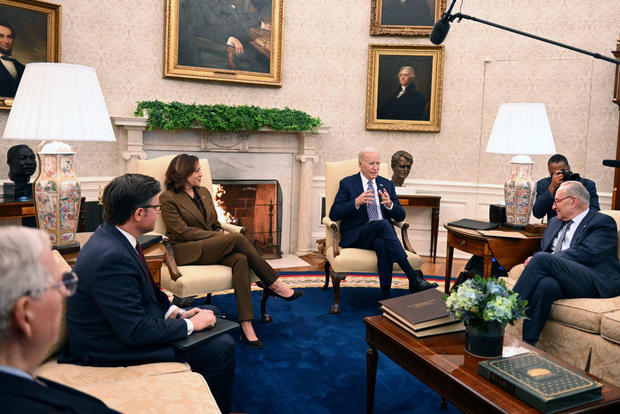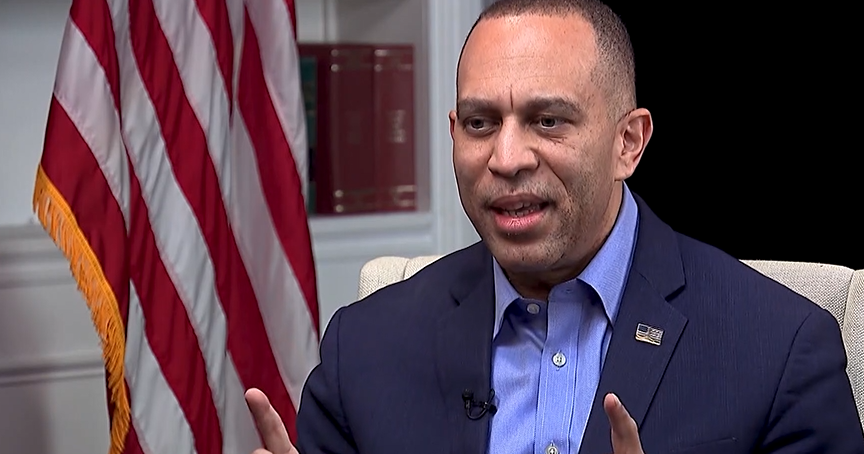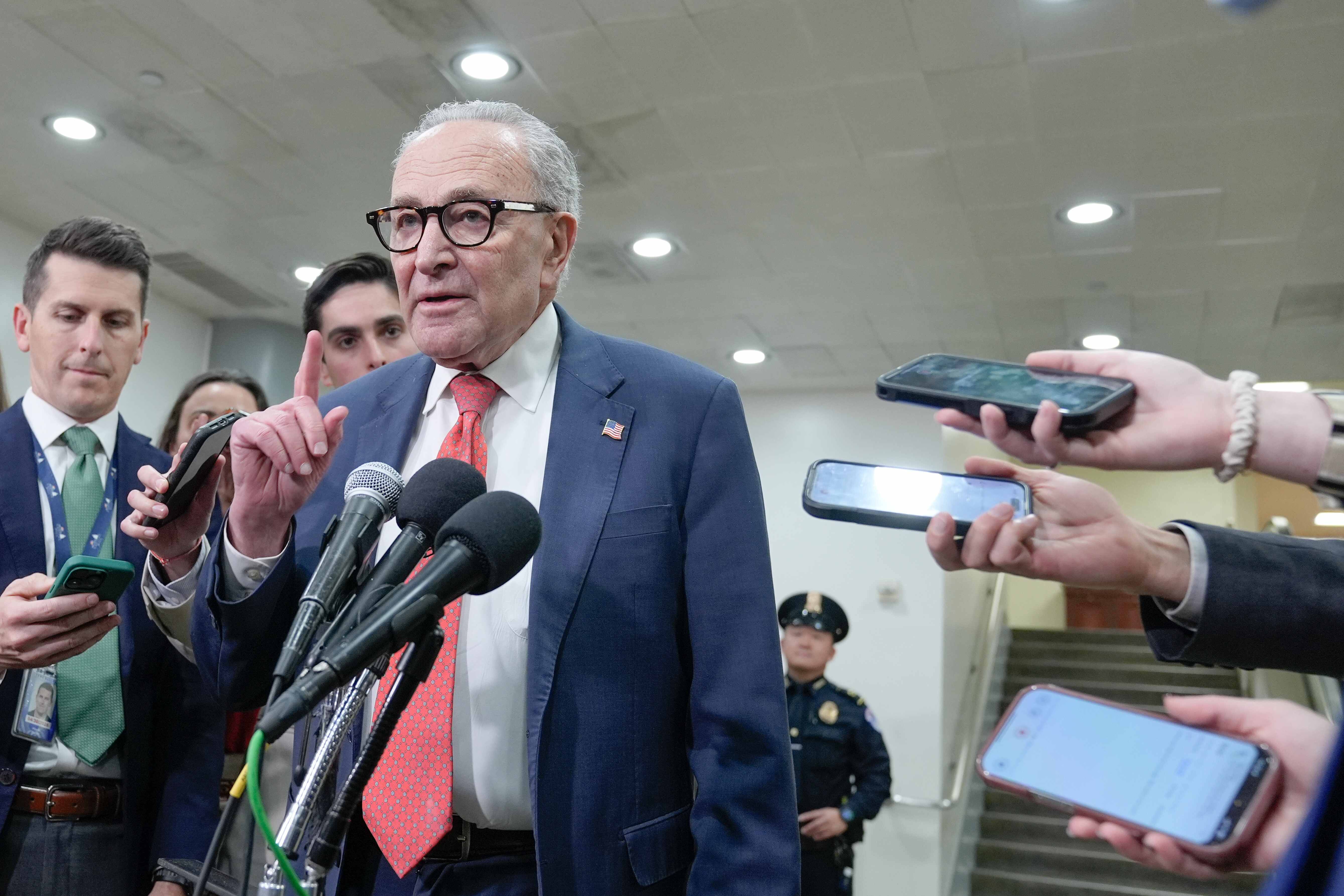Will there be a government shutdown? Lawmakers see path forward after meeting with Biden
Washington — Top congressional leaders from both parties emerged from a meeting with President Biden at the White House on Tuesday expressing optimism about avoiding a government shutdown ahead of a Saturday deadline to approve more funding.
Senate Majority Leader Chuck Schumer, Senate Minority Leader Mitch McConnell, House Speaker Mike Johnson and House Minority Leader Hakeem Jeffries met with the president and vice president in the Oval Office to discuss the effort to keep the government open beyond March 1. The top Democrats described the meeting as "productive" and "intense," and said they worked to find a path forward on government funding and on a supplemental foreign aid package.
"We're making good progress and we're hopeful we can get this done really quickly," Schumer said.
Schumer explained that Johnson said "unequivocally" that he wants to avoid a government shutdown. The New York Democrat said they made clear that that likely means passing a short-term measure to keep the government funded.
Speaking after Schumer, Johnson said he is "very optimistic" about approving more funding before the deadline.
"We believe we can get to agreement on these issues and prevent a government shutdown, and that's our first responsibility," he told reporters outside the Oval Office.
Multiple sources familiar with the ongoing talks confirmed to CBS News Tuesday evening that Johnson has put forward a new offer that would potentially involve passage of a short-term bill, known as a continuing resolution, that would fund the government through March 8 and March 22.
The proposal, which could be part of a broader agreement, is still under discussion and nothing has been finalized, according to two sources.
"Any CR would be part of a larger agreement to finish a number of appropriations bills, ensuring adequate time for drafting text and for members to review prior to casting votes," a spokesperson for Johnson told CBS News.
If such a CR were to pass, it would mark the fourth short-term spending deal Congress has reached since September.
Without a measure to fund the government or extend current funding levels on the first four of 12 spending bills, a partial shutdown would begin Saturday at 12 a.m., impacting parts of the federal government from the Department of Veterans Affairs to the Food and Drug Administration. A week later, the second deadline arrives, when the bulk of government funding is set to expire. That would impact the Department of Defense, Justice Department and other agencies.
Despite reaching an overarching agreement on topline numbers for government funding earlier this year, disagreements have remained in the funding effort. House conservatives have pushed for policy riders to be embedded within the funding legislation. Those policies are nonstarters for Democrats, complicating the path forward.
Although lawmakers have been aiming to approve all 12 spending bills to fund the government for fiscal year 2024, after already passing three stopgap measures to keep the government funded, another funding patch appears likely as the deadline draws near and the disagreements persist.
The supplemental funding package
The leaders also discussed passing a supplemental funding bill that would provide tens of billions of dollars in aid to U.S. allies and partners, including about $60 billion for Ukraine and $14.1 billion for Israel, along with around $9.2 billion for humanitarian assistance in Gaza. The Senate passed the legislation earlier this month on a bipartisan basis, but Johnson has so far blocked its path forward in the House, as the lower chamber mulls its own approach to the supplemental funding.
Schumer said the portion of the White House meeting on Ukraine funding was "one of the most intense I've ever encountered in my many meetings in the Oval Office." He said he and the other leaders pressed Johnson to bring up the supplemental bill in the House.
A group of Senate negotiators reached a border security agreement weeks ago that drew pushback from House Republicans, who argued it didn't go far enough. When the deal was eventually announced and quickly rejected by the GOP, the foreign aid package without border security was offered as an alternative.
After Monday's meeting, Johnson reiterated his position that the president should take executive action on immigration and said border security remains his priority.
"I was very clear with the president and all those in the room that the House is actively pursuing and investigating all the various options on [the supplemental bill], and we will address that in a timely manner," he said. "But again, the first priority of the country is our border and making sure it's secure."
Absent support from House leadership, lawmakers have explored a handful of avenues to get the foreign aid package to the floor of the lower chamber. One option is a discharge petition, a rarely successful legislative maneuver that allows a majority of members to bring a bill to the floor, bypassing leadership in the process. A group of House centrists also unveiled legislation earlier this month designed to get around the stalemate by providing foreign aid while enacting tougher border security measures.
— Nikole Killion contributed to this report.




